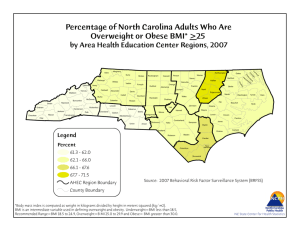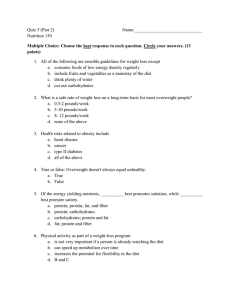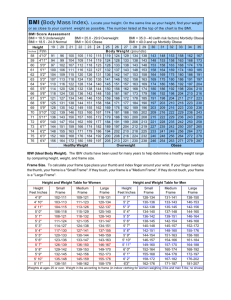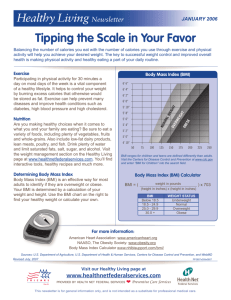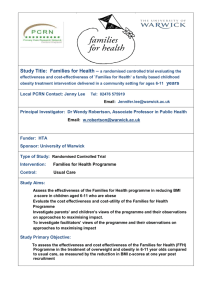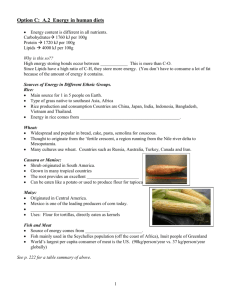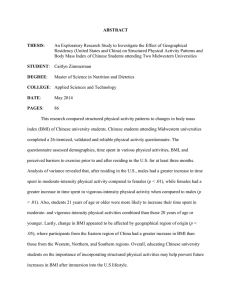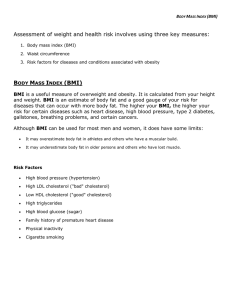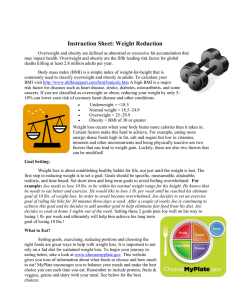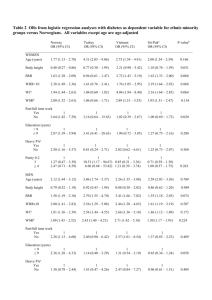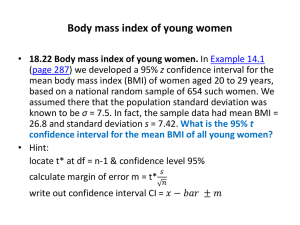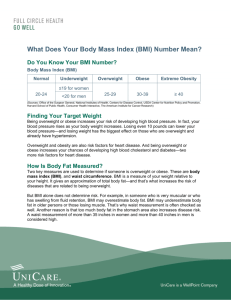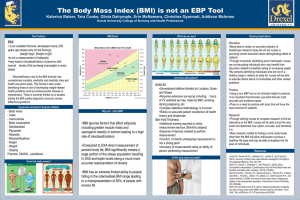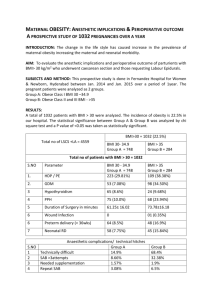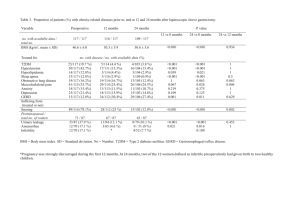BMIPresentation
advertisement
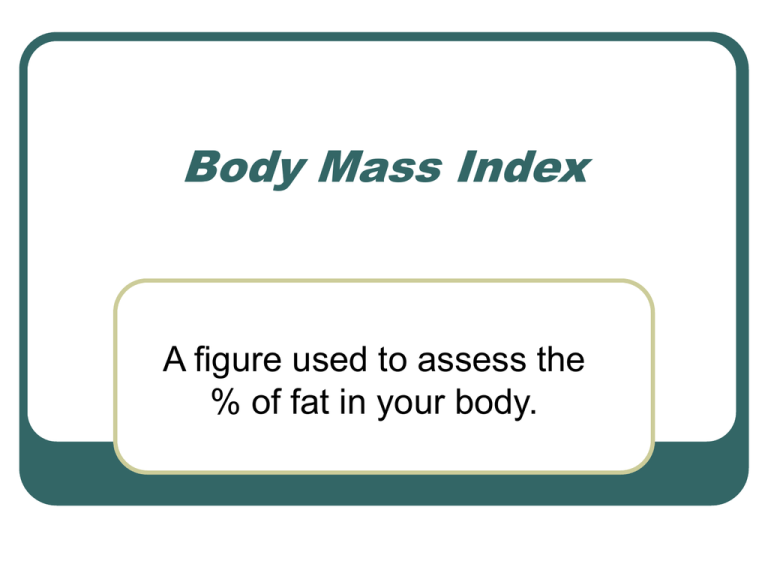
Body Mass Index A figure used to assess the % of fat in your body. BMI Body composition is the % of your body that is fat versus the % which is lean, e.g. muscles, bones, organs. BMI is a figure used by Government to try to slow down the trend of increasing obesity in the UK. It is estimated by the Government Office for Science’s Foresight programme that if obesity continues to increase at current rates nearly 90% of adults and two thirds of children in 2050 will be overweight or obese. This statistic will include your children! Calculating Your BMI For the mathematicians you would divide your weight in kg by your height in metres squared. For example someone who weighed 68kg, and was 1.68m tall 1.68 x 1.68 = 2.82 68 divided by 2.82 = 24 The following website will calculate your BMI for you. http://www.brianmac.co.uk/idealw.htm BMI If your BMI is 25.0-29.9 you are considered to be overweight. This means that your weight exceeds the normal standard based on height and frame size. If your BMI is above 30 your are considered to be obese. This means that you have a high % of body fat. Problems Associated With Obesity Joint disorders such as osteoarthritis, which is wear and tear on the cartilage of joints. Problems Associated With Obesity Coronary heart disease This could be hardening of the artery walls. This could also be narrowing of the space in arteries due to fatty deposits restricting blood flow. Angina and heart attacks. Lowering Your BMI The World Health Organisation recommends that all adults below 65 should accumulate 30+ mins of moderate-intensity physical activity on most, preferably all days of the week. This would be brisk walking, cycling, or gardening. This will help your body to burn fat as a fuel, as well as increasing your energy expenditure and improving your general health.
